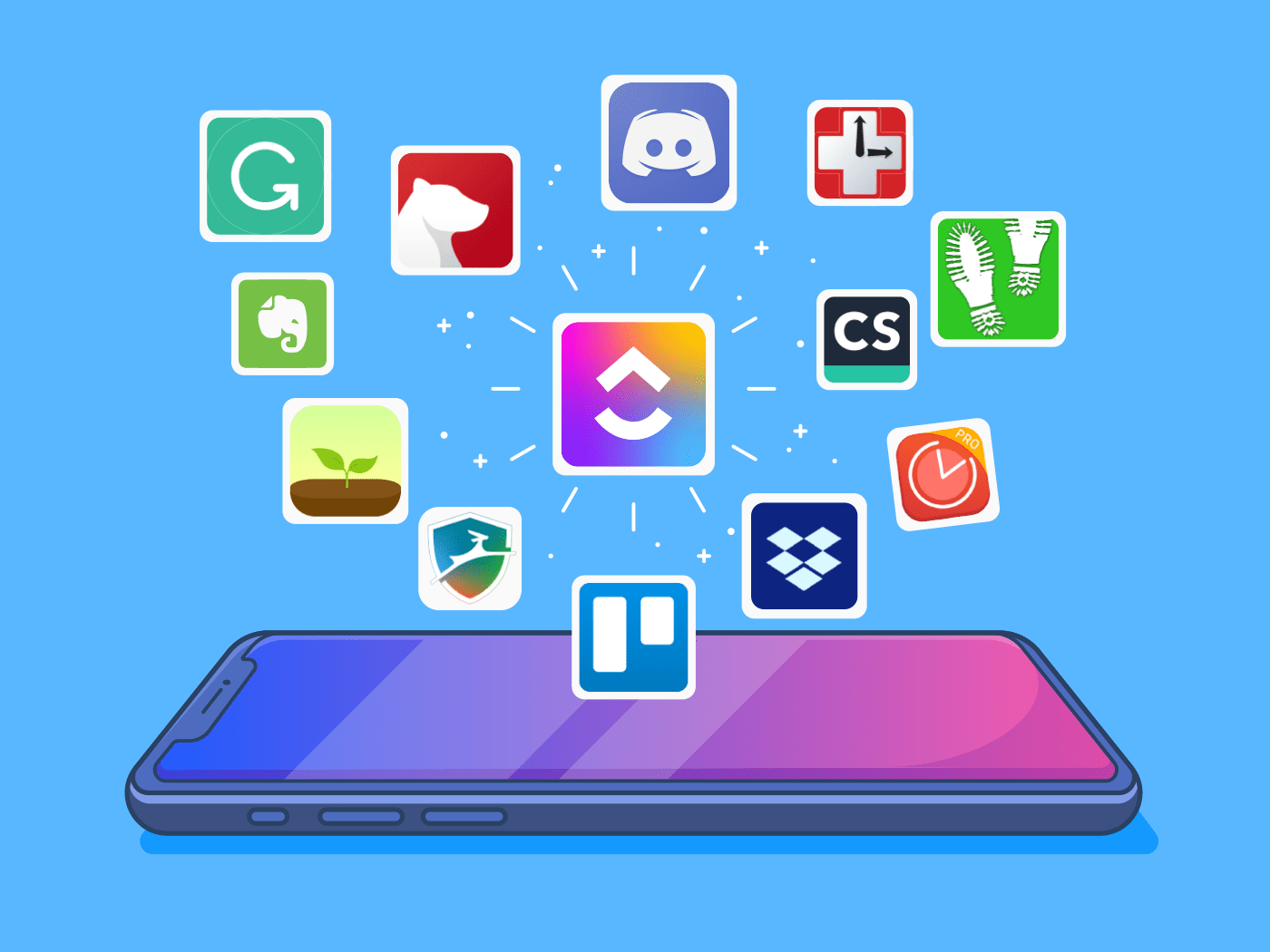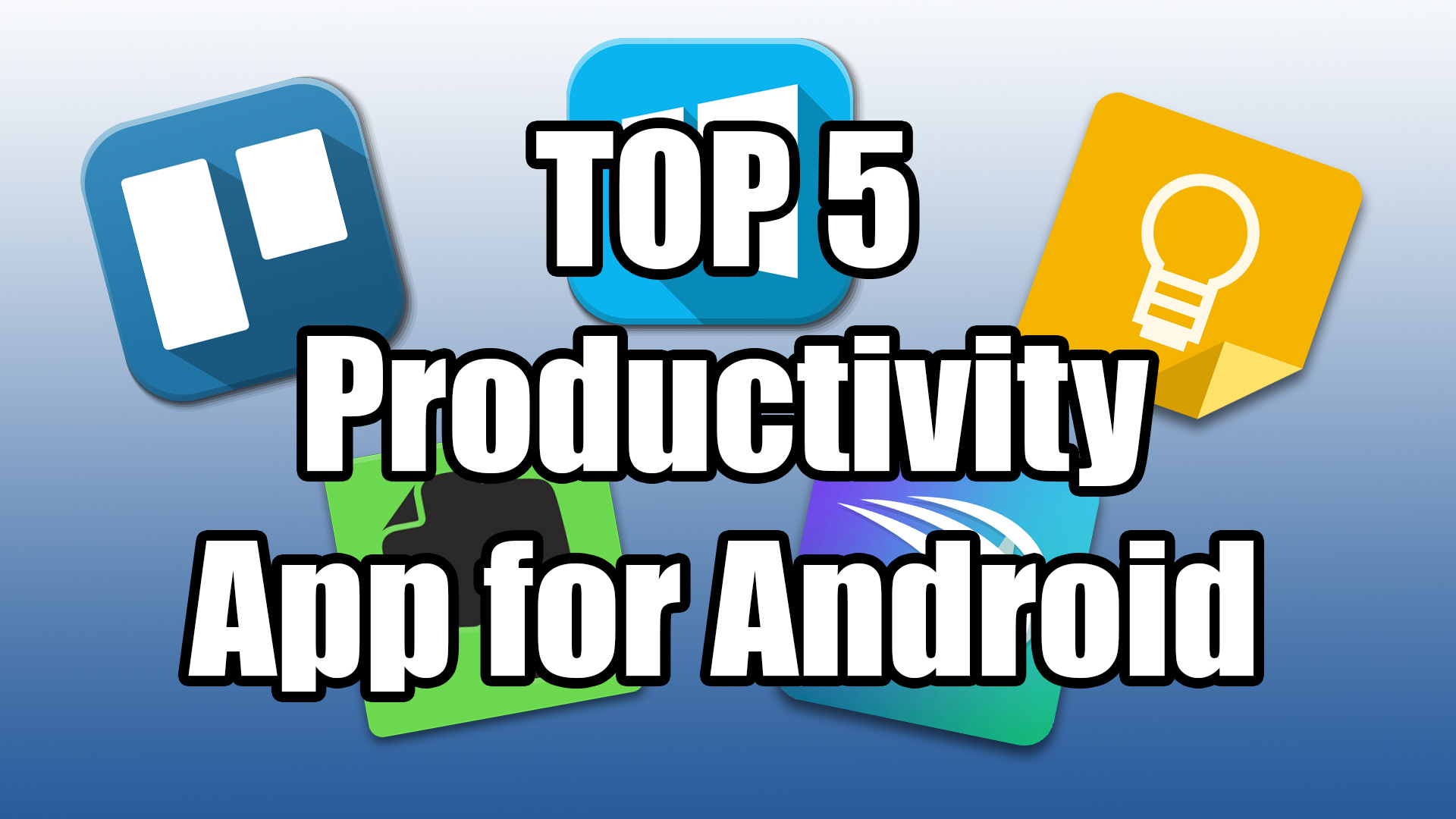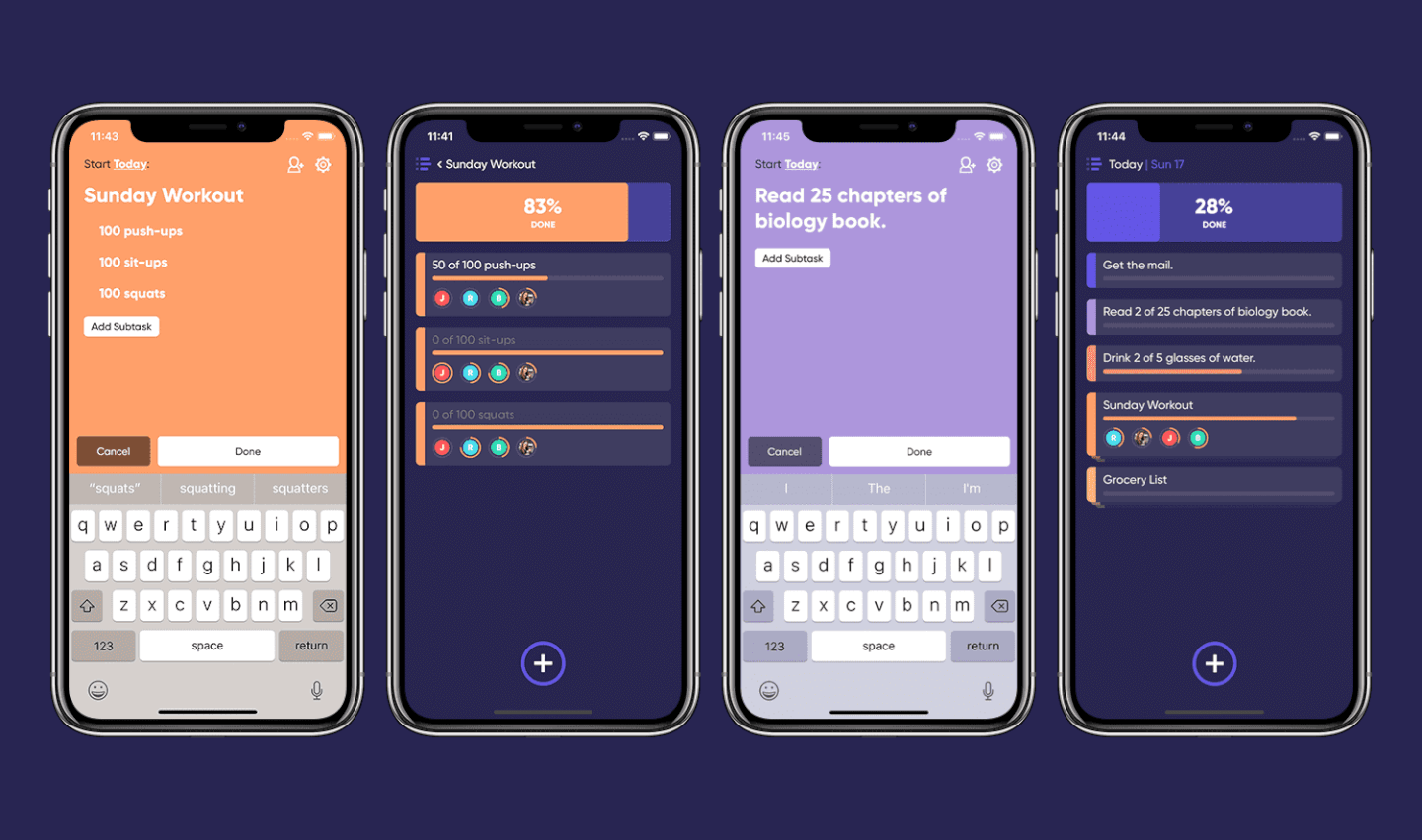Productivity Apps for Android: Enhancing Your Workflow
Productivity apps for Android have become indispensable tools for individuals seeking to streamline their workflows, boost efficiency, and accomplish more in less time. These apps offer a myriad of features tailored to specific needs, empowering users to manage tasks, track time, take notes, collaborate with teams, and automate processes.
With the proliferation of productivity apps available, choosing the right ones can be daunting. This comprehensive guide will delve into the key features to consider when selecting productivity apps, explore popular options for Android devices, and provide tips for using them effectively.
Additionally, we’ll uncover emerging trends shaping the future of productivity apps on Android.
Overview of Productivity Apps for Android
Productivity apps are software applications designed to help users manage their time, tasks, and resources more efficiently. They offer a wide range of features, from task management and note-taking to project planning and collaboration tools. By streamlining these tasks, productivity apps can help users save time, reduce stress, and achieve their goals more effectively.
The need for productivity apps on Android devices is particularly acute. With the proliferation of smartphones and tablets, we are increasingly using our mobile devices to manage our personal and professional lives. This has created a need for apps that can help us stay organized, focused, and productive on the go.
Types of Productivity Apps
There are many different types of productivity apps available for Android devices. Some of the most popular categories include:
- Task management apps:These apps help users create and manage to-do lists, set priorities, and track their progress.
- Note-taking apps:These apps allow users to take notes, organize them into notebooks, and share them with others. li> Project management apps:These apps help users plan and manage projects, track progress, and collaborate with team members.
- Collaboration apps:These apps allow users to share files, work on projects together, and communicate with team members in real-time.
- Time management apps:These apps help users track their time, identify areas where they can be more efficient, and improve their time management skills.
Key Features to Consider When Choosing Productivity Apps

When selecting productivity apps for Android, consider the following essential features:
- Task Management:Create, organize, and track tasks effectively. Look for apps with customizable task lists, reminders, and progress tracking.
- Time Tracking:Monitor time spent on tasks to optimize efficiency. Choose apps that offer automatic time tracking, manual entry, and reporting capabilities.
- Note-Taking:Capture and organize ideas, notes, and documents. Consider apps with rich text editing, collaboration features, and search functionality.
- Collaboration:Facilitate teamwork by enabling file sharing, task assignment, and real-time communication. Look for apps with chat, video conferencing, and document annotation features.
Additionally, advanced features like project management, automation, and integration can enhance productivity:
Project Management
- Create and manage projects, set deadlines, and track progress.
- Assign tasks, monitor team activity, and receive progress updates.
- Visualize project timelines, milestones, and dependencies using Gantt charts or Kanban boards.
Automation
- Automate repetitive tasks like email scheduling, task creation, and reminders.
- Integrate with other apps to trigger actions based on specific events or conditions.
- Streamline workflows and save time by eliminating manual processes.
Integration
- Connect productivity apps with other essential tools like calendars, email, and cloud storage.
- Synchronize data across devices and platforms for seamless access.
- Extend functionality and enhance productivity by leveraging a wider ecosystem of apps.
To evaluate productivity apps effectively, consider your specific requirements:
- Identify the key tasks and workflows you need to manage.
- Determine the level of collaboration and integration required.
- Consider your budget and the availability of free trials or premium subscriptions.
Popular Productivity Apps for Android
Productivity apps for Android offer a wide range of features to help you manage your tasks, projects, and time more efficiently. Here are some of the most popular productivity apps for Android, along with their key features, pros, cons, and pricing:
When choosing a productivity app for Android, it’s important to consider your specific needs and preferences. Some of the key features to look for include:
Key Features to Consider
- Task management
- Project management
- Time tracking
- Note-taking
- Collaboration
- Integration with other apps
Once you’ve considered your needs, you can start to compare different productivity apps. Here’s a table that compares some of the most popular productivity apps for Android:
| App Name | Key Features | Pros | Cons | Pricing |
|---|---|---|---|---|
| Todoist | Task management, project management, time tracking, collaboration | Easy to use, feature-rich, integrates with other apps | Can be expensive for some users | Free, Premium ($4/month), Business ($6/month) |
| Evernote | Note-taking, task management, project management, collaboration | Powerful note-taking features, syncs across devices | Can be slow and buggy at times | Free, Premium ($7.99/month), Business ($14.99/month) |
| Trello | Project management, task management, collaboration | Visual and intuitive interface, easy to use | Can be limited for complex projects | Free, Business Class ($10/month), Enterprise ($20/month) |
| Asana | Project management, task management, collaboration | Powerful project management features, integrates with other apps | Can be complex for some users | Free, Premium ($10.99/month), Business ($24.99/month) |
| Google Tasks | Task management, collaboration | Simple and easy to use, integrates with other Google apps | Lacks some features found in other productivity apps | Free |
Ultimately, the best productivity app for you will depend on your individual needs and preferences. However, the apps listed above are a great place to start your search.
Tips for Using Productivity Apps Effectively

To maximize the effectiveness of productivity apps, a strategic approach to setup and organization is crucial. Here are some key tips to help you optimize your workflows and boost productivity:
Establish a clear structure and organization system for your apps. Categorize and group related apps together, creating a logical and intuitive layout. This will streamline navigation and reduce time spent searching for specific tools.
Setting Up and Organizing Apps
- Classify apps into functional categories (e.g., task management, note-taking, communication).
- Use folders or custom labels to organize apps within categories.
- Create a home screen layout that prioritizes frequently used apps for quick access.
- Utilize widgets to display key information and shortcuts from within apps on the home screen.
Optimizing Workflows and Boosting Productivity
Productivity apps offer a wealth of features to streamline workflows and enhance efficiency. Explore and utilize these features to their full potential:
- Leverage task management apps to create to-do lists, set deadlines, and track progress.
- Use note-taking apps for capturing ideas, organizing research, and collaborating with others.
- Integrate calendar apps to manage appointments, schedule tasks, and receive reminders.
- Utilize communication apps for seamless collaboration, file sharing, and instant messaging.
Successful App Combinations and Use Cases
Combining different productivity apps can create powerful synergies and enhance overall productivity:
- Combine a task management app with a note-taking app to create a comprehensive system for tracking tasks, capturing ideas, and managing projects.
- Integrate a calendar app with a communication app to stay organized, schedule meetings, and communicate with colleagues efficiently.
- Use a productivity suite that offers a range of integrated apps for a seamless and cohesive workflow.
Future Trends in Productivity Apps for Android

The future of productivity apps for Android is bright, with emerging technologies set to have a significant impact on how we work and collaborate.Artificial intelligence (AI), machine learning (ML), and automation are already being used to improve productivity apps, and their capabilities will only continue to grow in the years to come.
AI-powered apps can learn from user behavior and preferences, providing personalized recommendations and automating tasks. ML algorithms can help apps to identify patterns and trends, making it easier to predict and plan for future events. Automation can free up users’ time by taking care of repetitive tasks, allowing them to focus on more strategic and creative work.
Role of AI and ML
AI and ML are already being used in a variety of ways to improve productivity apps for Android. For example, AI-powered apps can:
Learn from user behavior and preferences
This allows apps to provide personalized recommendations and automate tasks based on the user’s specific needs.
Identify patterns and trends
This can help apps to predict and plan for future events, such as scheduling meetings or sending reminders.
Automate repetitive tasks
This can free up users’ time so that they can focus on more strategic and creative work.
Impact of Automation, Productivity apps for Android
Automation is another key trend that is set to have a major impact on productivity apps for Android. Automation can be used to streamline a variety of tasks, such as:
Scheduling meetings
Automation can help users to find a time that works for everyone, and can even send out invitations and reminders.
Sending emails
Automation can be used to send out emails at a specific time or in response to a specific event, such as when a new file is uploaded.
Managing projects
Automation can help users to track progress on projects, assign tasks, and send out updates.The combination of AI, ML, and automation is set to revolutionize productivity apps for Android. These technologies will make it easier for users to get work done, collaborate with others, and achieve their goals.
Ultimate Conclusion
In conclusion, productivity apps for Android have revolutionized the way we work and manage our time. By leveraging the latest technologies and embracing innovative features, these apps continue to empower users to achieve greater productivity and success. As we look ahead, the future of productivity apps promises even more advancements, with artificial intelligence, machine learning, and automation playing increasingly significant roles in enhancing our workflows.
FAQ Summary
What are the key features to consider when choosing productivity apps?
Essential features include task management, time tracking, note-taking, and collaboration. Advanced features may include project management, automation, and integration.
How can I use productivity apps effectively?
Set up and organize apps strategically, optimize workflows by combining apps, and track progress regularly.
What are the future trends in productivity apps for Android?
Emerging technologies like AI, machine learning, and automation will play a crucial role in enhancing productivity apps, offering personalized recommendations, automating tasks, and providing real-time insights.



